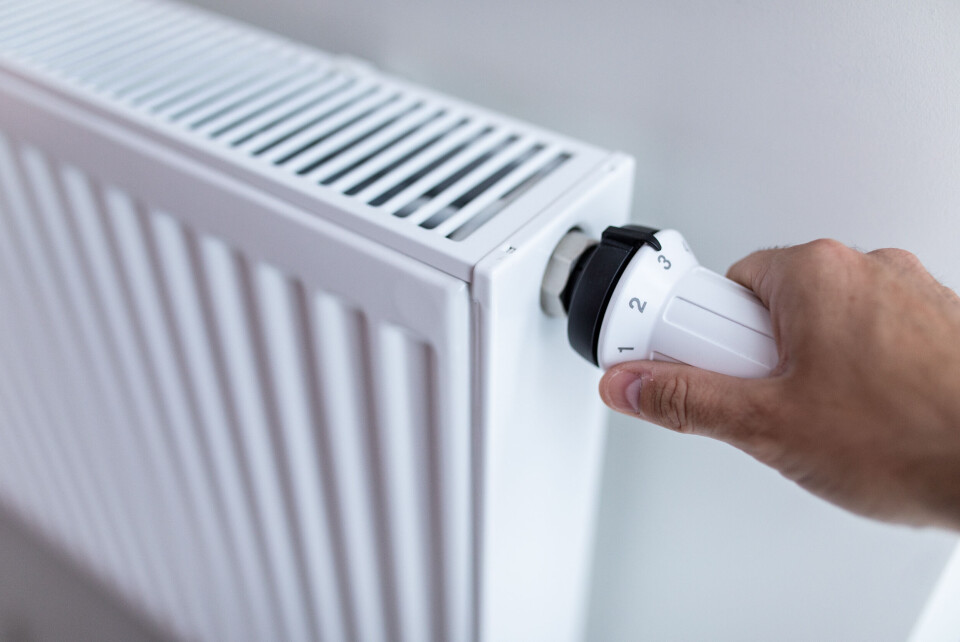-
Cars and driving: What's new in France in 2026
Including the new pollution tax on used cars, motorway toll changes and speed camera changes
-
More than a quarter of new car registrations in France are electric
EV sales hit new record in November 2025
-
Ryanair’s presence confirmed at Tours-Val de Loire airport
Bookings for summer flights to Marseille and Morocco are already open
France sets out winter energy saving plan for residents and businesses
Brief cuts to electric radiators at peak times, money for car-sharing and added financial incentives for home working – we outline the key proposals being announced this afternoon

An €800million plan to save energy this winter in France so as to avoid power cuts or gas shortages is being outlined by the government this afternoon (October 6).
The announcement of the plan de sobriété énergétique is being made by nine different ministers as well as the prime minister, Élisabeth Borne, in a series of speeches.
Ms Borne is then due to give a roundup of the announcements early this evening.
Dozens of different measures are being set out across several sectors including energy, transport, housing, business, public services, sports and tourism.
France’s Energy Transition Minister Agnès Pannier-Runacher said that she was looking for companies, public services and local authorities to take responsibility for saving energy. She said that “there will be no temperature police” checking homes and businesses but asked for responsible action by all.
Several key measures have already been announced, others are expected later today. These include:
- Asking residents to reduce electricity waste at home by turning off appliances that are not used and limiting heating to 19C in main rooms or 17C in bedrooms. A major public information campaign to provide details is to launch on October 10
- Very short cuts (around 10 minutes) to electric radiators during peak electricity periods
- Cutting or reducing public lighting at certain hours
- Offering people a €100 bonus for using car-sharing services (the final amount has not yet been confirmed). Specific car-pooling lanes on French roads are also being considered, along with the possibility of free car parks near motorways.
- Encouraging people to work from home and increasing the daily work-from-home compensation rate by 15% (the precise increase is yet to be confirmed)
- Switching off neon shop signs and advertisements during the night or after the shop or venue closes
- Lowering the temperatures in public buildings
- Carrying out rapid small renovations on public buildings to make them more energy efficient – a budget of €150million has been set aside for this
- A 30-step plan to reduce energy consumption in the public sector in four areas: buildings, travel and transport, purchasing and digital technology
France is at risk of electricity shortages this winter due to a combination of factors, including the war in Ukraine and the fact that over half of the country’s nuclear reactors are currently offline.
Twelve of the country’s 56 reactors have been offline for several years due to corrosion issues, while others are currently undergoing maintenance.
France gets 70% of its electricity from nuclear power.
To deal with this situation, the government is aiming for a 10% reduction in energy consumption in France.
In order to achieve this, it is relying on the "responsibility" of each individual rather than strict rules and wants public services and officials to lead by example.
#Sobriété | Face à la crise énergétique et pour répondre au défi de la planification écologique, le @gouvernementFR est mobilisé.
— Stanislas Guerini (@StanGuerini) October 6, 2022
Je présenterai à 14h les mesures concernant les administrations publiques et les agents, pour construire ensemble l’#EtatExemplaire. pic.twitter.com/85YtzylBQz
💡La sobriété énergétique ça n’est pas une mode, c’est le prélude à un modèle, à un fonctionnement, plus durable.
— Olivia Gregoire (@oliviagregoire) October 6, 2022
Réduire de 10% notre consommation d’énergie, c’est possible.
Pour y parvenir, voici les engagements pris par les différents secteurs du commerce et du tourisme.
1/2 pic.twitter.com/kqWOP53Csb
2/2 pic.twitter.com/5t9uRkK6SV
— Olivia Gregoire (@oliviagregoire) October 6, 2022
You can read our previous coverage of France’s planned energy saving measures in the links below:
- Enedis’ right to turn off water heaters in France: Are you affected?
- Enedis’ energy-saving water heater plan: five questions and answers
- French energy firms offer up to €120 discount to those who cut usage
- French residents save thousands on electricity by returning to EDF
- French TV news gives weather report-style electricity usage updates
- Tips for saving hundreds of euros on annual energy bills in France
- Energy costs: French mayor buys pupils fleeces as heating drops to 19C
- Energy crisis: Will French ski resorts raise their prices this year?
We will bring you a round-up of the exact measures as they are all confirmed later today on Friday morning.
























